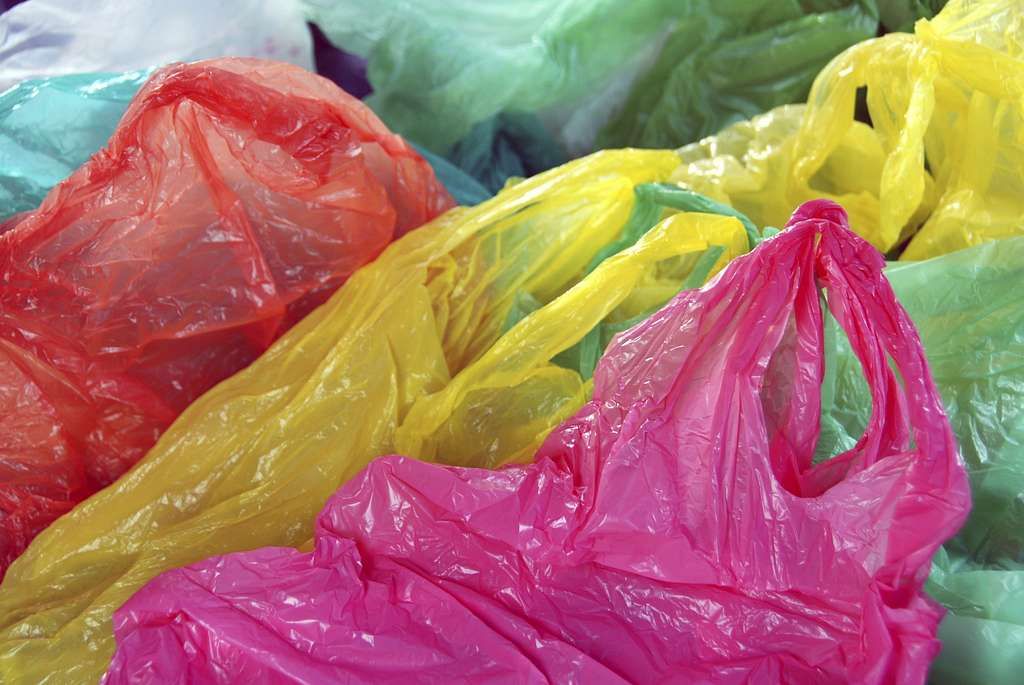Bag ban didn’t backfire, N.J. says. Plastic industry paid for study.

Nearly two years after New Jersey enacted one of the toughest plastic bag bans in the nation, is it working?
A study making its way around the state and the nation — paid for by a group that’s been known to lobby against plastic bag bans — says it’s backfired.
However, some environmental groups and Gov. Phil Murphyhave balked at the study’s conclusions — and who paid for it.
The report from Ohio-based market researcher The Freedonia Group released at the end of December was commissioned by the American Recyclable Plastic Bag Alliance (ARPBA), which notes on its website that it “represents the interests of U.S.-based manufacturers and recyclers of plastic bags.”
It argues that, because we’re all relying on reusable bags — most of which are made of polypropylene — three times more plastic, by the pound, is being produced than before the ban. They also say that carbon emissions from the production of those bags have rocketed.
But the report relied mostly on conducting interviews with “industry constituents” — plastic bag suppliers, bag brokers and distributers, as well as grocery store retailers, not shoppers.
“Like all of our projects at Freedonia Custom Research, this report was prepared on behalf of our client,” Kristen Pieffer, project manager at Freedonia Custom Research, said Wednesday. “I encourage readers to consider the scope of the study and reflect on their own behaviors at the store and how they have changed since 2015, considering the bag options available to them.”
The report’s analysis began in 2015 in part because that’s the year Longport became the first town in New Jersey to ban plastic and paper bags for carry-out at its businesses.
New Jersey’s law went into effect in May 2022, banning single-use plastic bags everywhere, paper bags at most stores and Styrofoam-like products at all grocery stores and restaurants.
During an appearance on News12 New Jersey′s “Ask Governor Murphy” last week, the Democratic governor who pushed for the law, called the premise laid out by the study “ridiculous.”
“The Freedonia Group sounds like something out of a Marx Brothers movie. Who are these people? That’s ridiculous. I don’t know the study, but that’s just not what’s going on here,” Murphy said on the show.
Murphy said at the start of the ban, it was common for families — even his own — to forget their reusable bags and need to buy new ones.
“We think this is not a straight line” to implement, Murphy continued, “but it was the right thing to do environmentally. And it is working and it will continue to work.”
A different study published in January by Environment America, the U.S. Public Interest Research Group Education Fund and Frontier Group said effective plastic bag bans nationwide, including New Jersey’s were shown to prove successful in reducing the use of plastic and plastic pollution.
But that analysis was based on the number of plastic bags that the nonprofit New Jersey Food Council determined grocery and convenience stores were no longer providing.
The Plastics Advisory Council, created by the state to determine if the ban is working, released a report last May. That overview found about 5.5 billion single-use plastic bags and 110 million single-use paper bags were kept out of landfills in the supermarket sector from May 2022 to the end of that year alone.
But those figures are based on a sample size, surveys and rely on numbers extrapolated from bag-use habits before the ban. They also don’t take into account the production of the reusable bags.
Cindy Zipf, executive director of Clean Ocean Action who chairs the council, said a report on the bag ban’s second year is due this May but she could not immediately clarify if it would delve deeper into the state’s waste stream or include new data sets compared to the first report.
“It is likely that far more single-use plastic bags and paper bags were reduced this past year, which the Plastic Advisory Council will attempt to further quantify in its second-year report to the legislature,” New Jersey Department of Environmental Protection (NJDEP) spokeswoman Caryn Shinske said Wednesday in a statement.
Shinske called the law “successful” but noted that the NJDEP is aware of some increase in the use of reusable polypropylene bags to replace single-use plastic bags.
“NJDEP identified this issue as an opportunity for action in its first-year report and has been working with counties, industries, and others to come up with solutions,” Shinske said.
From where Zipf stands, however, the ban has been proven to work.
Clean Ocean Action found in its 2022 beach clean-ups that the number of plastic shopping bags, straws, and foam takeout containers had dropped by more than 35% compared to the previous year — which they attributed to the state’s ban.
“I think you can ask any citizen if they’ve seen litter of plastic bags reduced in their communities. You don’t see them floating in the trees like they used to,” Zipf said. “It’s not perfect but it’s come a long way in a very expedited timeframe.”
